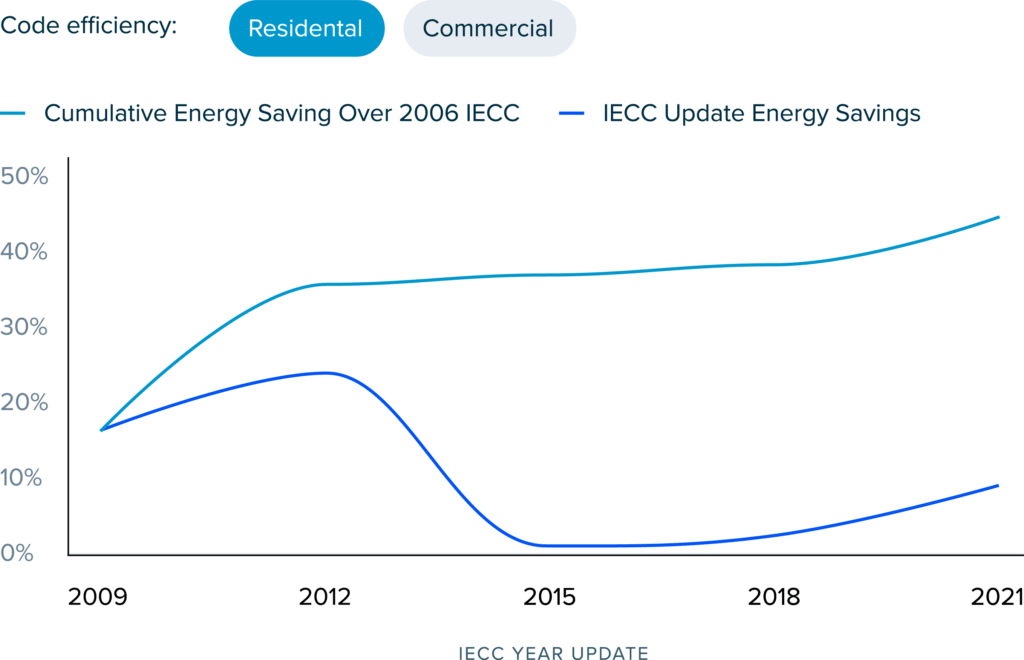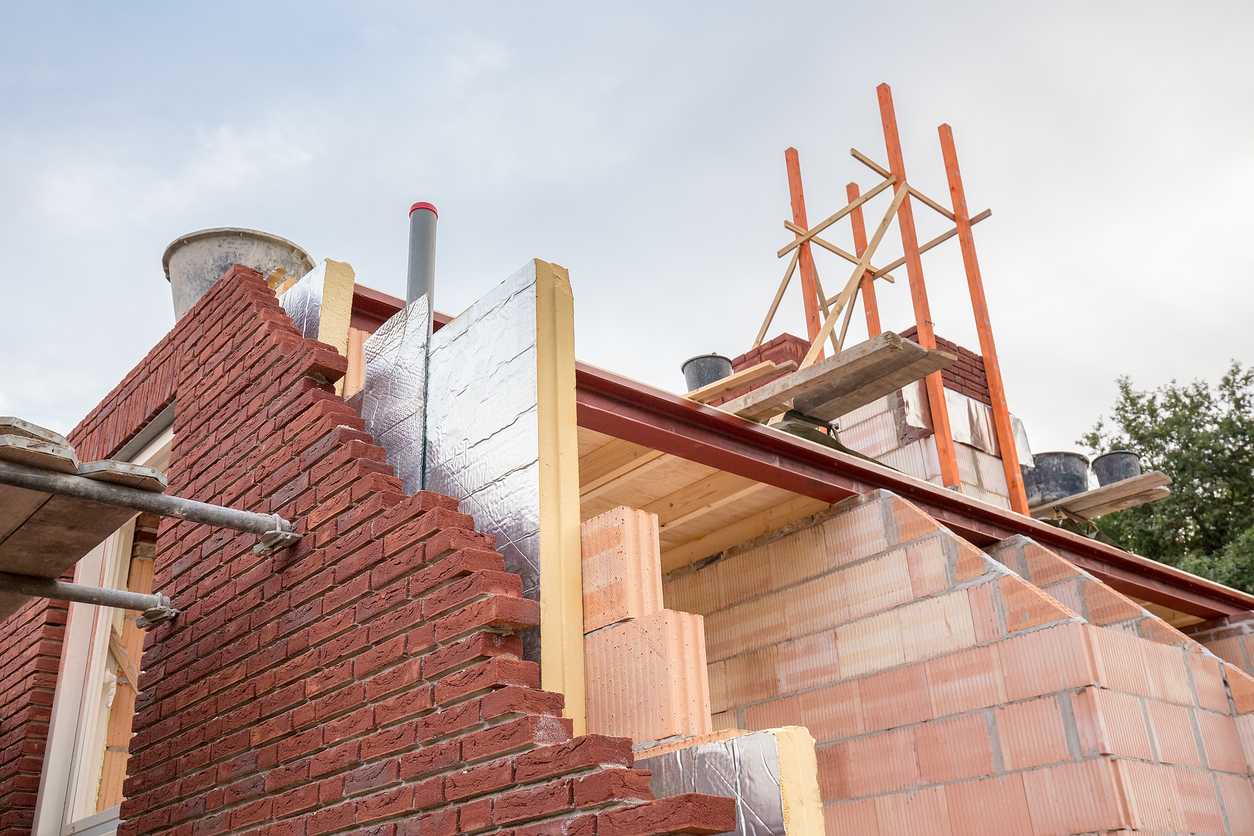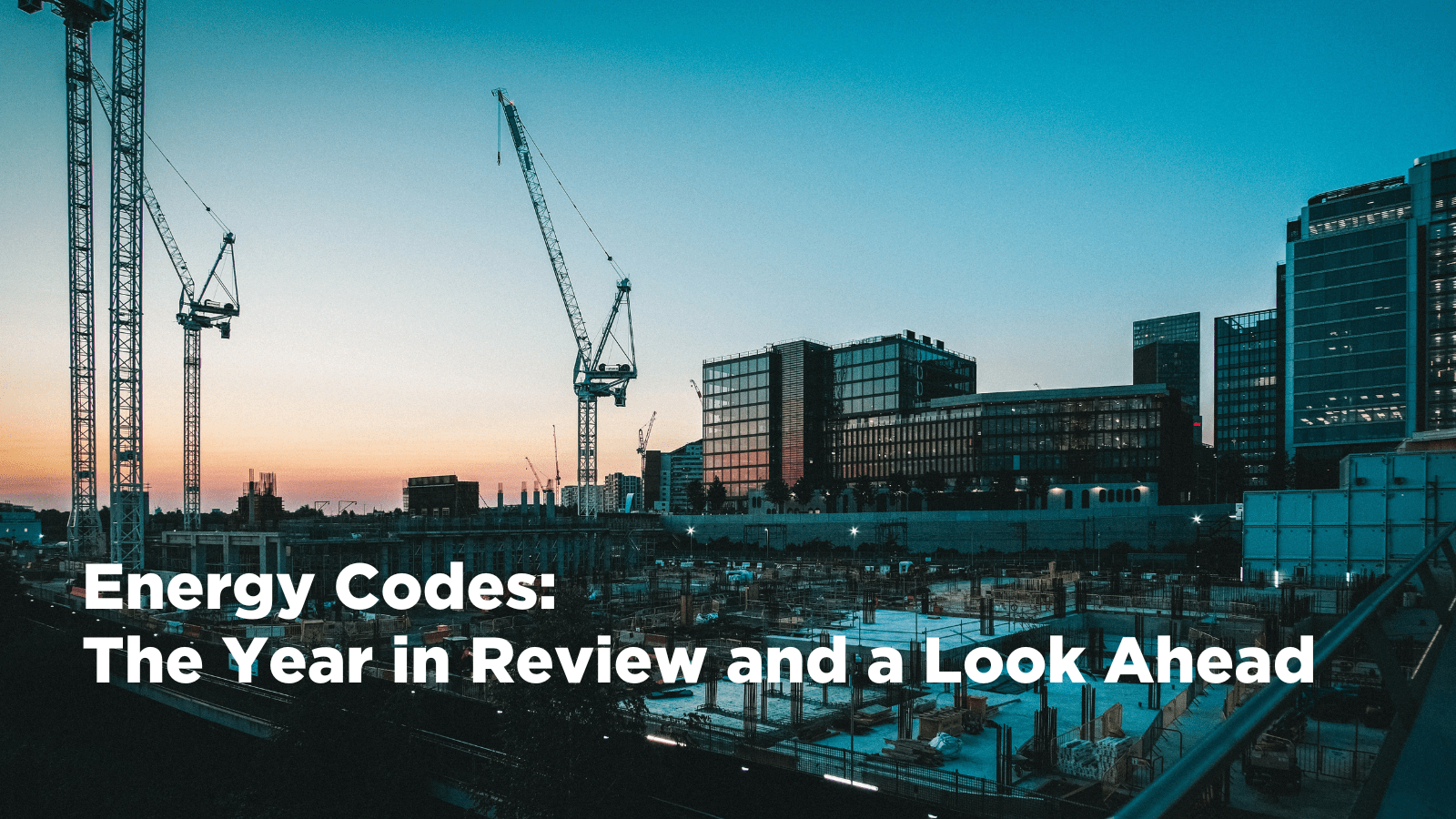In early 2021, the International Code Council (ICC) made the decision to shift the development of the International Energy Conservation Code (IECC) from a governmental consensus process to a standards development process. This transition makes the IECC the only one of the I-codes to follow this new process. IMT and other supporters of efficiency have compiled resources to help interested individuals understand and participate in the revamped process.
Code Efficiency Snapshot


How to Participate
Committees
Two committees, one for the Commercial code, and one for Residential, oversee the development of the IECC. At least one-third of the members of each committee are from the Governmental Regulator Interest Category. Committee meetings are open to all interested parties.
Subcommittees
Technical experts representing the various subject matters addressed in the energy code evaluate proposals specific to their area of expertise. Each subcommittee consists of half committee members, and half external interested parties. Subcommittee meetings are open to all interested parties. IECC Committee Procedures are outlined in this document.
Proposals
Proposed changes to the energy code are submitted through an energy-specific version of cdpACCESS. Proposal submission is open to all members of the public. A login is required, but registration is free.
Public comments
Once the initial draft of the IECC is complete, it is published in its entirety for members of the public to offer their support or critique of the changes, as well as to offer new suggestions. The second public comment period is limited to only the changes from the first draft. More information on the public comment process can be found in this flowchart.


